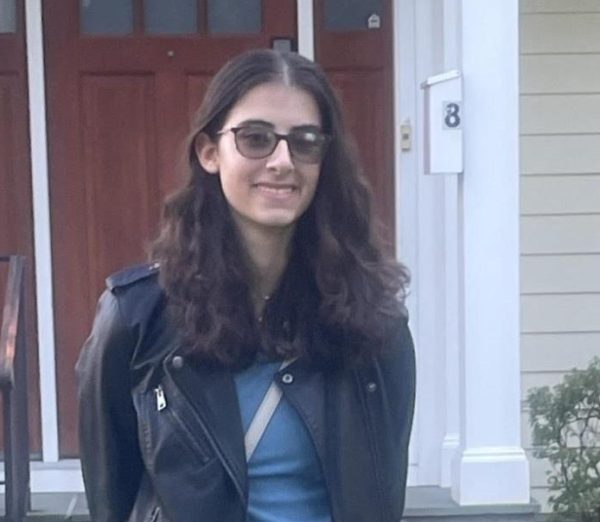In February, just as students finally adjusted to recent shifts in the college admissions process, several schools announced new policies. In 2020, COVID-19 resulted in many colleges moving to test-optional policies. In June of last year, the Supreme Court ruled that affirmative action was unconstitutional. These factors, along with growing debates about standardized testing’s socioeconomic impact have had a major influence on the admissions process. Now some colleges have decided to resume their requirements for standardized testing, while others have doubled down on the policy.
On February 5th, 2024, Dartmouth College announced that it will reinstate its standardized testing requirements, beginning with undergraduate applications for the class of 2029. In 2020, Dartmouth temporarily changed its policy to allow applicants to submit applications without standardized test scores. Now, Dartmouth has become the first Ivy League school to return to its original policy after 2020. For the school, its test-optional policy was never intended to be a permanent situation. “We did not see this decision at Dartmouth as a more universal truth that everybody must follow.”, Dartmouth’s Dean of Admissions and Financial Aid for Dartmouth, Lee Coffin explained in an interview with Inside Higher ED; however, this decision begs the question of if schools will follow in their footsteps.
The debate over standardized testing’s impact on low-income students during the application process has long been at the forefront of the college admissions landscape. “There have always been conversations about standardized testing and whether or not they’re really a mark of socioeconomics…The pandemic forced schools into the test-optional movement. But once they were there, they recognized that the applicant pool was helping them meet their institutional priorities of a more diverse student body in every respect (socioeconomic, geographic, etc…).” Dean Oren Iosepovici explained.
However, some recent data suggest that test-optional policies hurt students. Often, these students with sufficient scores would not include their scores on the application because they were below the median range, weakening their application. The inclusion of test scores helps identify students with potential, showcasing their ability to succeed in their given situation.“I think what these schools are saying… is that they always have looked at standardized exams within the context of the environment that the student’s coming from. If a student’s coming from a community or a school that’s not as well resourced, they’re not evaluating that student against those who apply from more competitive high schools or communities.” Iosepovici added.
Following Dartmouth’s decision, Yale announced it will also resume requiring test scores on applications. With its new policy, the school has expanded the options for what scores can be submitted. Students will now be able to submit AP or IB scores instead of SAT or ACT scores. The new policy, which will take effect during the 2025 application cycle, expanded upon the university’s pre-Covid policy. The inclusion of AP and IB exams serves to not disadvantage students who have not taken the ACT or SAT because of the wide range of colleges offering test-optional policies. The university also made it clear that more test scores do not help a student’s application.
Among top universities, there is still a divide. In addition to Dartmouth and Yale, Brown and the University of Texas Austin also recently announced their return to requiring test scores. Although it’s likely to see more schools announcing this same return, many are choosing to remain test-optional. The University of Michigan, Harvard, and Columbia have extended their test-optional policies after COVID, while the UC school system has gone test-blind, meaning it will not look at test scores regardless of whether they are included. The State of Georgia recently announced that it’s reevaluating its test-optional policy for its schools. The rise of AI has also begun to influence the admissions process.
In February, Duke announced that it would no longer assign a numerical value to test scores and essays in their admissions process. Previously Duke used a point system, considering six factors to help determine acceptance. Originally, a score of one to five was assigned to 6 aspects of the application; curriculum strength, academics, recommendations, essays, extracurriculars, and test scores; totaling a score out of 30 points, now only four categories remain. Duke’s policy change has involved removing test scores and essays as factors given a numerical value.
This policy change comes with the rise of artificial intelligence and the fear that these essays do not accurately reflect an applicant’s writing ability. The school also mentioned that the rise of consultant-aided or written essays contributed to this decision. With its new policy, the content of essays will be used to help understand the applicant, without putting too much emphasis on the writing style. Essays and test scores are now “considered as we think holistically about a candidate as a potential member of the Duke community,” Dean of Undergraduate Admissions Christoph Guttentag mentioned in an email to the Duke Chronicle.
With everything going on in terms of standardized testing debates and the rise of AI, the next couple of years will bring more changes to the admissions process. As policies continue it shift, the effects will continue to be felt among students preparing for college. While these changes may seem overwhelming, Dean Iosepovici offers his advice. “Stay away from the noise. Do what’s right for you. Just like with anything else we say, the classes you take, take what is appropriate for you. Don’t look to your left or right. Just because somebody else is doing something doesn’t mean that that’s the right thing for you…and then eventually when it comes down to the college process, you’re gonna find places that are a good fit for you, that are a good match, that meet your individual needs.”







